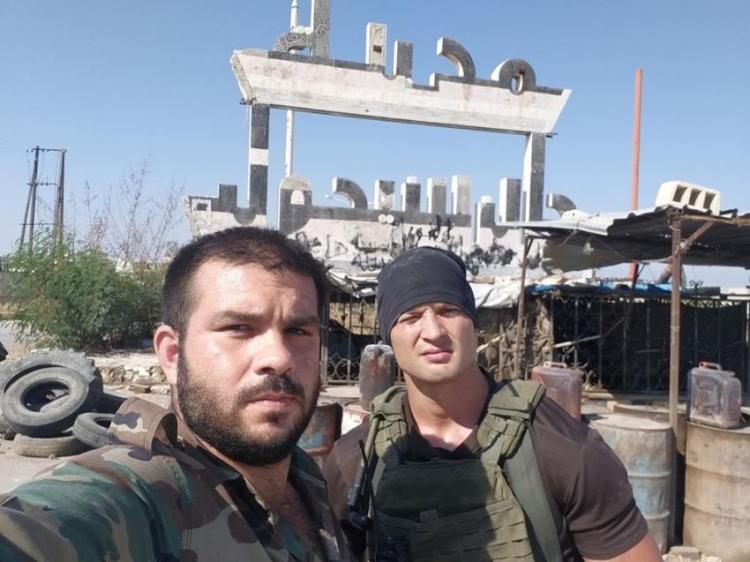North-Press Agency
Warshin Saleh/Muhammad al-Bozo
The director of the Syrian Observatory for Human Rights Rami Abdul Rahman stressed that the last stage in the battles in the de-escalation zone was “critical”.
Desperate defense
Rami Abdul Rahman said that the Syrian government forces have advanced in southern Idlib and northern Hama after a military campaign which was started with intensive aerial bombardment by the Syrian and Russian Air Forces, stressing that it was a critical stage from April 2019 to the beginning of last June by the Syrian government advance in more than 20 towns, one of which was in Idlib and the rest were in Hama.
Abdul Rahman added that the armed opposition groups repelled the attacks of the Syrian forces, stopped their advance and kept in positions of defense, which resulted to the failure of the government forces in controlling the areas of Tel al-Meleh and al-Jabeen from the beginning of June until the end of July.

Withdrawal orders
The director of the Syrian Observatory assured that the opposition groups “have received orders to withdraw from the areas they have been defending for long periods, while in Astana 13 a ceasefire was held for several days where the Syrian army didn’t make any advance, but the control of 24 villages, town and farms until the date of Astana which was at the beginning of this month compared to the advance which was done after Astana”.
“The ceasefire was collapsed after the regime mobilized its military forces during the three days of the alleged ceasefire, and then they began to advance and control the strategic areas in the northern countryside of Hama and southern Idlib rapidly”, Rami Abdel Rahman said.
“There were no clashes in the area in the hours before the advancement, where this shows an agreement with the opposition groups in the area”, he added.
The director of the Observatory also confirmed that the Turkish intelligence wasn’t weak, but it had sent “tens of thousands of jihadists” to Syria through Turkish territories who didn’t enter to help the Syrian people, but they contributed in “destroying the revolution of the Syrian people, and they turned it into a fight “between the Islamic Jihadi groups and the Syrian regime forces, and this is what we warned of since late of 2011”, according to Abdul Rahman.
Sending “jihadists” from Libya
He stressed that he had spoken during a meeting in the Polish capital Warsaw with Mustafa Abdul Jalil, the former chairman of the Libyan Transitional Council about “sending jihadi fighters to Syria by orders of Abdel Karim Belhadj and Mahdi al-Muhrati”.
“The mute devil”
He considered that the Turkish observation points in Syria were playing the role of “the mute devil and weren’t effective in the process of ceasefire”, noting that they “let the opposition to fail, where Turkey was its main supporter”, and this was embodied by Turkey’s monitoring to the processes of displacement and migration without any reaction by them.
The director of the Syrian Observatory reiterated that the only enemy of Turkey “are the Kurds and not only YPG”, and this was evident in the words of the Turkish president Erdogan before the assault on Afrin who stressed, according to Abdul Rahman that “the goal of controlling Afrin was to send the majority of Arabs and Turkmen to Afrin, and we know that the majority of the population of Afrin are Kurds”.
Abdel Rahman believes that the aid provided doesn’t amount to the tragedy of the displaced people in Idlib, and that many of them don’t receive the assistance from NGOs where some of which have “withdrawn from the region because of the existence of Hayat Tahrir al-Sham, which is internationally classified as a terrorist group”.

